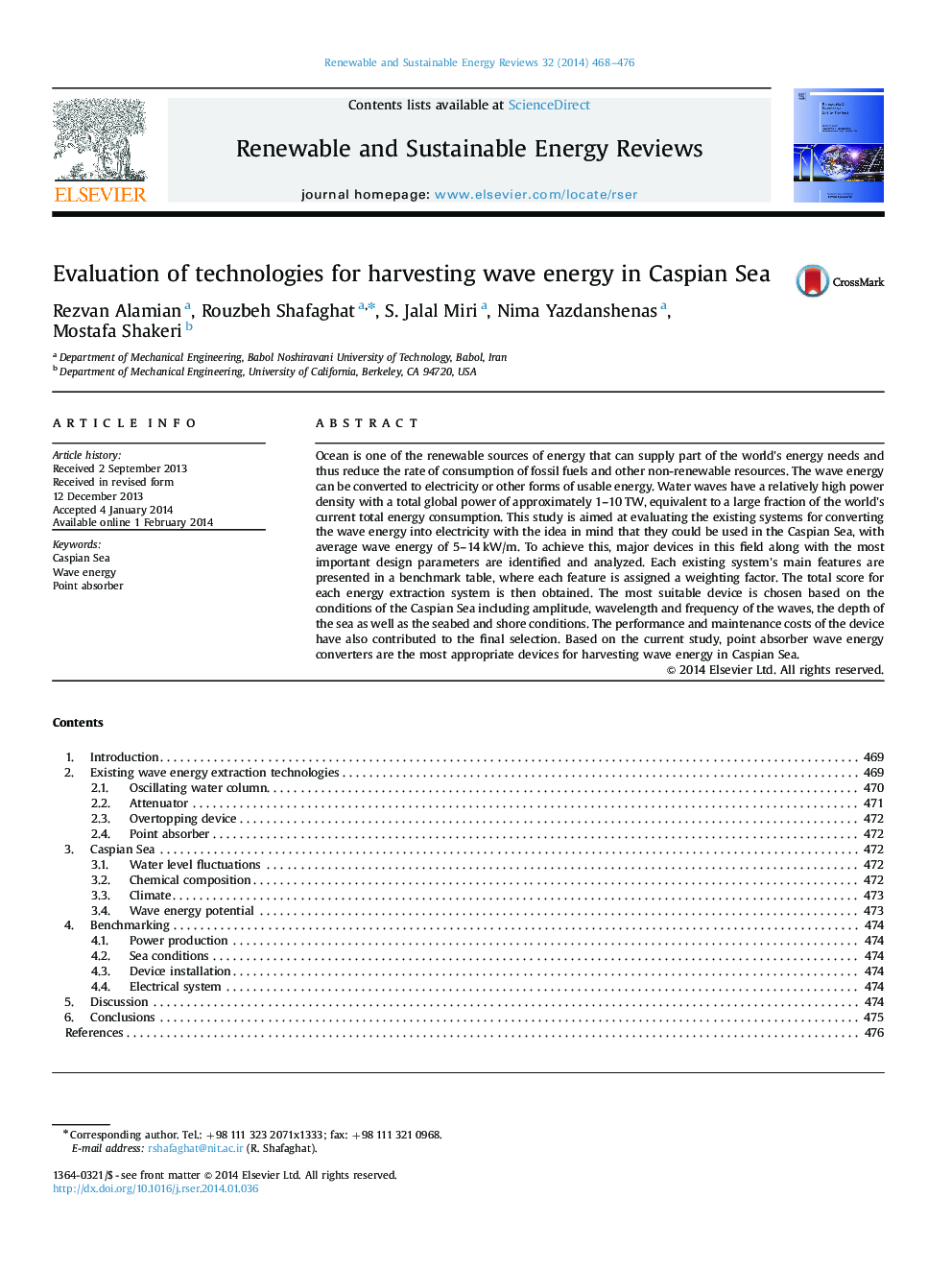| Article ID | Journal | Published Year | Pages | File Type |
|---|---|---|---|---|
| 8120262 | Renewable and Sustainable Energy Reviews | 2014 | 9 Pages |
Abstract
Ocean is one of the renewable sources of energy that can supply part of the world's energy needs and thus reduce the rate of consumption of fossil fuels and other non-renewable resources. The wave energy can be converted to electricity or other forms of usable energy. Water waves have a relatively high power density with a total global power of approximately 1-10Â TW, equivalent to a large fraction of the world's current total energy consumption. This study is aimed at evaluating the existing systems for converting the wave energy into electricity with the idea in mind that they could be used in the Caspian Sea, with average wave energy of 5-14Â kW/m. To achieve this, major devices in this field along with the most important design parameters are identified and analyzed. Each existing system's main features are presented in a benchmark table, where each feature is assigned a weighting factor. The total score for each energy extraction system is then obtained. The most suitable device is chosen based on the conditions of the Caspian Sea including amplitude, wavelength and frequency of the waves, the depth of the sea as well as the seabed and shore conditions. The performance and maintenance costs of the device have also contributed to the final selection. Based on the current study, point absorber wave energy converters are the most appropriate devices for harvesting wave energy in Caspian Sea.
Keywords
Related Topics
Physical Sciences and Engineering
Energy
Renewable Energy, Sustainability and the Environment
Authors
Rezvan Alamian, Rouzbeh Shafaghat, S. Jalal Miri, Nima Yazdanshenas, Mostafa Shakeri,
